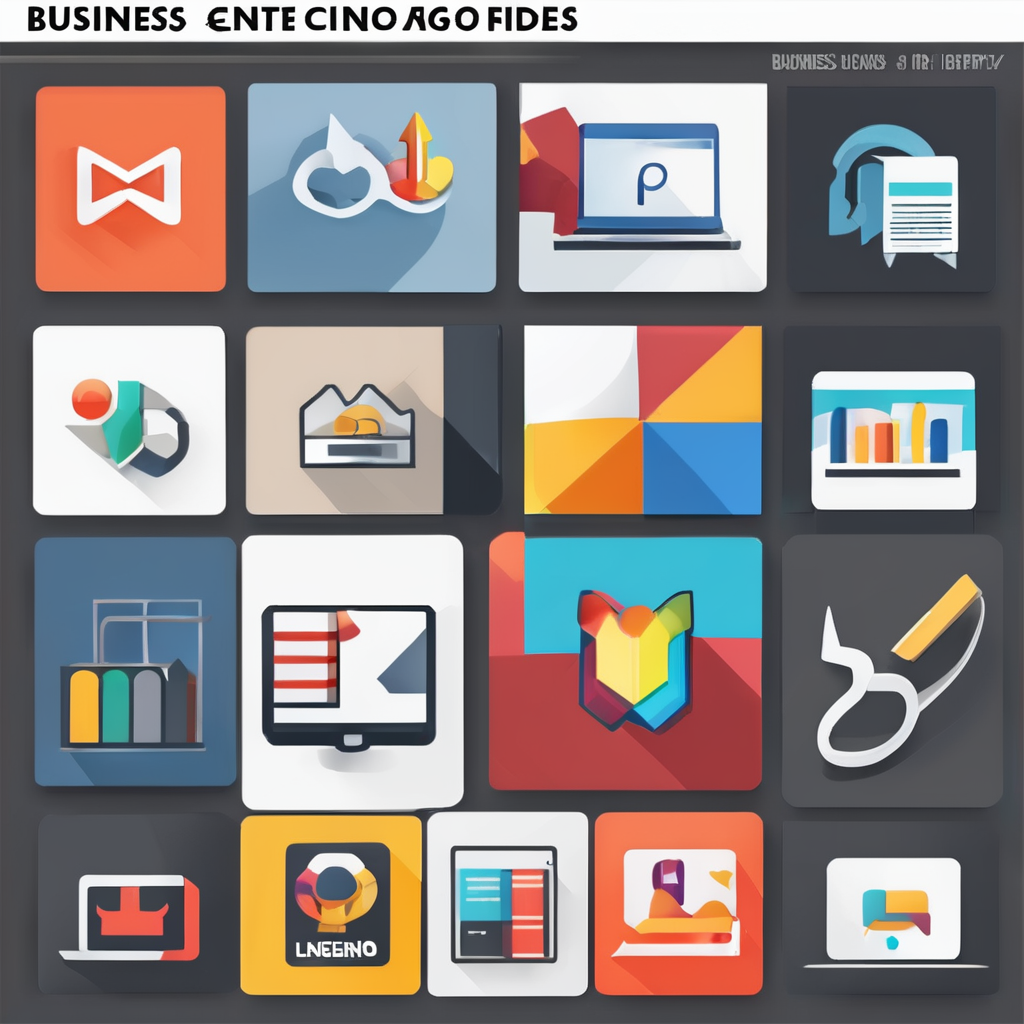Navigating Market Shifts in the UK: What Are the Latest Trends to Watch?
In the ever-evolving landscape of the UK market, staying ahead of the curve is crucial for businesses, investors, and consumers alike. Here, we delve into the latest trends that are shaping the retail industry, economic outlook, and consumer behaviour, providing you with the insights you need to navigate these changes effectively.
Retail Trends: A Resilient Sector Amidst Challenges
The UK retail sector has been a bellwether for broader economic trends, and recent developments are no exception. Despite the ongoing living crisis and rising cost of living, some retailers have managed to thrive.
Also read : Industrial tubes: unlocking solutions for diverse applications
B&M European Value Retail: A Success Story
B&M European Value Retail S.A. is a prime example of a retailer that has adapted and flourished. Following a strong fourth quarter, B&M upgraded its fiscal 2025 earnings outlook, reflecting the company’s ability to meet consumer demand for value-driven products[1].
This success can be attributed to several factors:
Also to read : What are the challenges facing UK businesses in international trade?
- Value Proposition: B&M’s focus on offering affordable products has resonated with consumers looking to manage their budgets during economic uncertainty.
- Operational Efficiency: The company’s efficient supply chain and cost management strategies have helped maintain profitability.
- Consumer Loyalty: By consistently delivering on its promise of value, B&M has built a loyal customer base.
Key Retail Trends to Watch
Here are some key trends shaping the retail industry:
- Online Shopping: The pandemic accelerated the shift to online shopping, and this trend continues. Retailers are investing heavily in e-commerce platforms to enhance the online shopping experience.
- Example: Many retailers now offer real-time inventory updates and seamless checkout processes to improve customer satisfaction.
- Sustainability: Consumers are increasingly conscious of environmental and social issues, driving demand for sustainable products.
- Example: Retailers are incorporating eco-friendly packaging and sourcing materials from sustainable suppliers.
- Omnichannel Experience: Consumers expect a cohesive shopping experience across all channels—online, in-store, and through social media.
- Example: Retailers are using data analytics to personalize marketing and improve the customer journey.
Economic Outlook: Navigating Rate Cuts and Inflation
The economic landscape in the UK is complex, with several factors influencing market trends.
Interest Rate Cuts and Their Impact
The Bank of England’s forecasted rate cuts for 2025 are expected to have significant implications for the economy. Here’s how these cuts might affect various sectors:
- Financial Services: Lower interest rates can boost borrowing and spending but may also reduce savings rates, impacting financial services companies.
- Quote: “Lower interest rates can stimulate economic growth by making borrowing cheaper, but they also pose challenges for savers and financial institutions,” says a financial analyst.
- Consumer Spending: Reduced interest rates can increase consumer spending as borrowing becomes more affordable.
- Example: Homebuyers may benefit from lower mortgage rates, potentially boosting the housing market.
- Currency Exchange: The impact on currency exchange rates, such as the GBP/ZMW, could be significant, affecting international trade and investment[2].
Inflation and the Cost of Living
The cost of living crisis continues to be a major concern for consumers and businesses. Here are some key points to consider:
- Inflation Rates: Despite recent fluctuations, inflation remains a challenge, affecting consumer spending power.
- Data: The latest economic reports indicate that inflation rates, though stabilizing, are still above target levels.
- Consumer Behaviour: Consumers are becoming more cautious with their spending, prioritizing essential items over discretionary purchases.
- Example: Retailers are seeing increased demand for budget-friendly options and value-for-money products.
Consumer Behaviour: Understanding the New Normal
Consumer behaviour has undergone significant changes in recent years, driven by economic, social, and technological factors.
Mental Health and Consumer Spending
The mental health of consumers is increasingly influencing their spending habits. Here’s how:
- Wellness Products: There is a growing demand for wellness products and services, reflecting consumers’ focus on mental health.
- Example: Retailers are expanding their wellness product lines, including self-care items and health supplements.
- Experiential Spending: Consumers are opting for experiences over material goods, seeking activities that promote mental well-being.
- Example: The rise of experiential retail, where stores offer workshops and events, is a response to this trend.
Labour Market and Job Security
The labour market is another critical factor shaping consumer behaviour. Here are some key points:
- Job Security: Uncertainty in the job market can lead to cautious spending habits.
- Data: Economic reports indicate that job security concerns are impacting consumer confidence.
- Gig Economy: The rise of the gig economy has changed the nature of work, affecting how consumers manage their finances.
- Example: More people are turning to freelance or part-time work, which can impact their spending patterns.
Supply Chain Resilience: A Critical Component
The resilience of supply chains is crucial for businesses to navigate market shifts effectively.
Challenges and Solutions
Here are some challenges and solutions related to supply chain management:
- Global Disruptions: Global events such as pandemics and geopolitical tensions can disrupt supply chains.
- Solution: Diversifying suppliers and investing in logistics technology can help mitigate these risks.
- Sustainability: Consumers are demanding more sustainable supply chains, which can be both a challenge and an opportunity.
- Example: Companies are adopting sustainable practices, such as using renewable energy and reducing waste, to meet consumer expectations.
Practical Insights and Actionable Advice
For businesses and consumers looking to navigate these market shifts, here are some practical insights and actionable advice:
For Retailers
- Invest in E-commerce: Enhance your online presence to meet the growing demand for online shopping.
- Example: Invest in user-friendly websites and mobile apps, and ensure real-time inventory updates.
- Focus on Sustainability: Incorporate sustainable practices into your operations to appeal to environmentally conscious consumers.
- Example: Use eco-friendly packaging and source materials from sustainable suppliers.
- Personalize Customer Experience: Use data analytics to personalize marketing and improve the customer journey.
- Example: Implement loyalty programs and offer personalized recommendations based on customer data.
For Consumers
- Budgeting: Manage your finances carefully, prioritizing essential items over discretionary purchases.
- Example: Use budgeting apps to track your spending and make informed financial decisions.
- Seek Value: Look for value-driven products and services to manage the cost of living.
- Example: Consider shopping during sales periods or using coupons and discounts.
- Support Sustainable Businesses: Choose retailers that adopt sustainable practices to contribute to a more environmentally friendly economy.
- Example: Research companies before making purchases to ensure they align with your values.
Navigating market shifts in the UK requires a deep understanding of the latest trends and their implications. From the resilient retail sector to the evolving economic landscape and changing consumer behaviour, each aspect plays a crucial role in shaping the market.
By staying informed about these trends and adapting strategies accordingly, businesses can thrive, and consumers can make more informed decisions. Whether it’s investing in e-commerce, focusing on sustainability, or managing finances carefully, being proactive is key to success in this dynamic market environment.
Detailed Bullet Point List: Key Trends in the UK Retail Industry
-
Online Shopping:
-
Increased investment in e-commerce platforms
-
Real-time inventory updates
-
Seamless checkout processes
-
Integration with social media for a cohesive shopping experience
-
Sustainability:
-
Eco-friendly packaging
-
Sourcing materials from sustainable suppliers
-
Adoption of renewable energy
-
Reduction of waste in operations
-
Omnichannel Experience:
-
Personalized marketing using data analytics
-
Cohesive shopping experience across online, in-store, and social media channels
-
Real-time customer support
-
Value Proposition:
-
Focus on offering affordable products
-
Efficient supply chain and cost management
-
Building consumer loyalty through consistent value delivery
-
Consumer Behaviour:
-
Prioritization of essential items over discretionary purchases
-
Increased demand for wellness products and services
-
Experiential spending over material goods
Comprehensive Table: Economic Indicators and Their Impact
| Economic Indicator | Impact on Financial Services | Impact on Consumer Spending | Impact on Currency Exchange |
|---|---|---|---|
| Interest Rate Cuts | Reduced savings rates, increased borrowing | Increased consumer spending, especially on housing | Potential impact on GBP/ZMW exchange rate |
| Inflation Rates | Higher costs for financial institutions | Reduced consumer spending power | Impact on international trade and investment |
| Job Security | Uncertainty affecting consumer confidence | Cautious spending habits | Potential impact on labour market stability |
| Supply Chain Disruptions | Increased costs, potential for supply chain failures | Delayed or lost shipments affecting consumer access to goods | Global economic instability |
Relevant Quotes
- “Lower interest rates can stimulate economic growth by making borrowing cheaper, but they also pose challenges for savers and financial institutions.” – Financial Analyst
- “The mental health of consumers is increasingly influencing their spending habits, with a growing demand for wellness products and services.” – Consumer Behaviour Expert
- “Retailers must adapt to the new normal by investing in e-commerce, focusing on sustainability, and personalizing the customer experience.” – Retail Industry Expert


